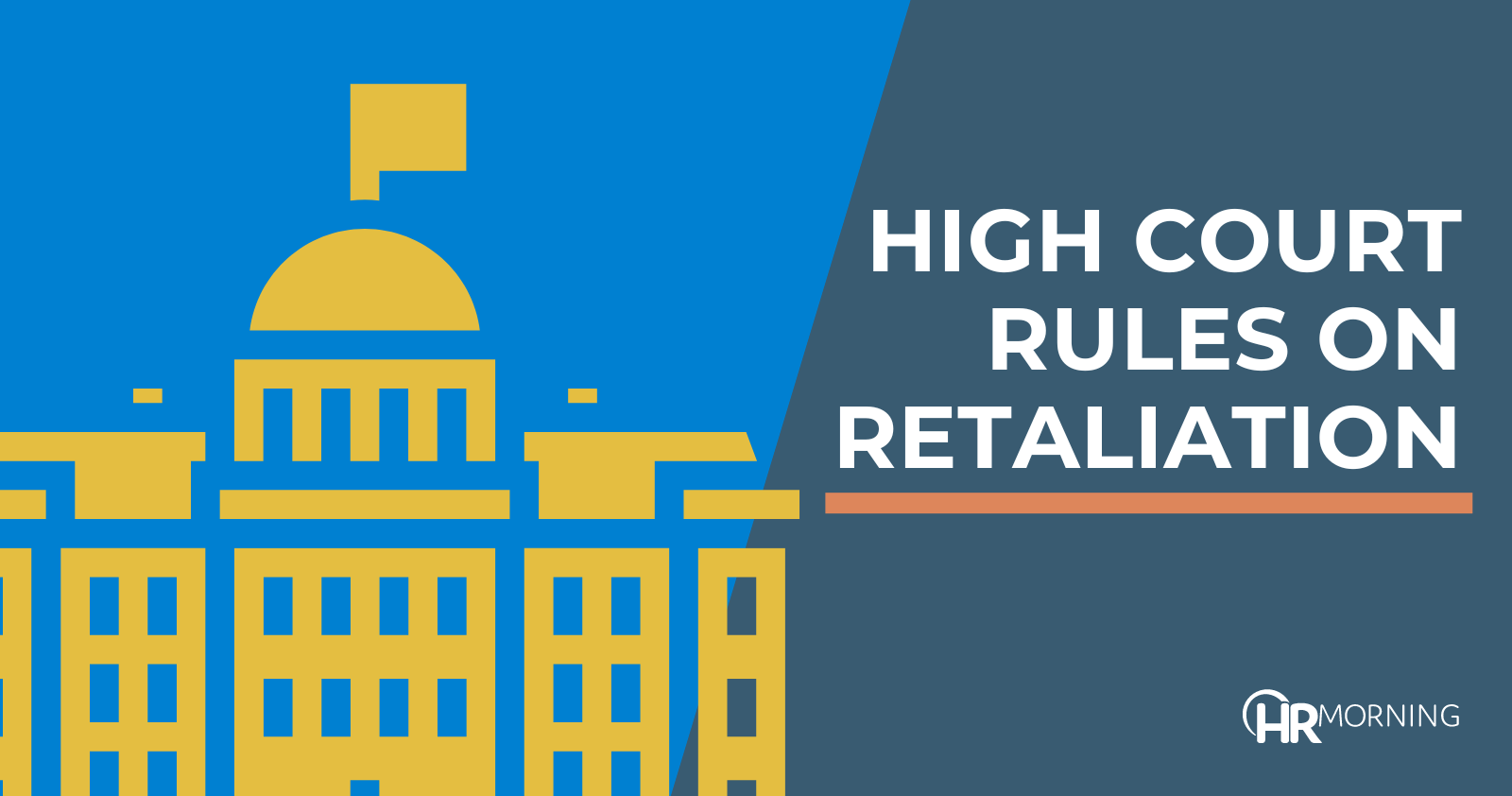It’s not too often that statutory language provides a pretty clear answer to a question that makes it all the way to the U.S. Supreme Court. But that’s exactly what happened when the High Court delivered an employee-friendly ruling about retaliation in a case filed under the federal Sarbanes-Oxley Act of 2002.
Under that act, publicly traded companies (and contractors that work with them) may not retaliate against employees who make a good-faith report of criminal fraud or securities law violations.
The question in this case: To win on a retaliation claim filed under the act, does an employee need to show that the employer acted with retaliatory intent?
The answer: No — because the statute says so.
Employee claims retaliation
The plaintiff in the case is Trevor Murray, who worked as a research strategist at securities firm UBS.
In that role, Murray reported on commercial mortgage-backed securities markets to current and future customers of UBS.
Federal regulations require that those reports be produced independently and reflect the writer’s own views.
Murray said trading desk leaders pressured him to skew his reports to make them more supportive of UBS’s business strategies. He twice reported the leaders’ alleged misconduct to his direct supervisor, who allegedly told him to “write what the business line wanted.” Soon after, Murray’s employment was terminated.
Murray sued in federal court to allege a Sarbanes-Oxley retaliation violation. He said UBS violated that law by firing him because he reported fraud on shareholders.
The provision he relied on says covered employers may not discriminate against any employee because of the employee’s protected whistleblowing activity.
Trial court got it right
The trial court told a jury that it should find in Murray’s favor on his retaliation claim if he showed that his protected activity (the report of alleged fraud) was a contributing factor in his termination. If he did so, it continued, UBS would need to show it would have terminated Murray’s employment even if he did not engage in the protected activity.
This burden-shifting instruction largely mirrored what the statute says to do when an employee raises a claim under the provision Murray relied on.
The jury ruled in Murray’s favor, but a federal appeals court vacated its verdict and said Murray could not win unless he showed UBS acted with retaliatory intent. The question of whether retaliatory intent is required then reached the Supreme Court for review.
Read the statute
The Court began by noting that the text of the act’s provision banning retaliation does not include or even reference a retaliatory intent requirement. Instead, it sets a mandatory burden-shifting framework that was accurately reflected by the trial court’s jury instructions.
UBS offered only a circular definition of what retaliatory intent means, the Court added.
There is nothing in the statutory text to justify a requirement of retaliatory intent, the Court explained.
Essentially, the Court said that imposing such a requirement would ignore what the statute says to do.
What does ‘discriminate’ mean?
UBS hung its hat on the argument that the act’s language requiring the employer to “discriminate” necessarily meant that there must be retaliatory intent. But the word “discriminate” does not inherently require retaliatory intent, the Court decided.
UBS asked the Court to give the word “discriminate” more weight than it deserved, the Court said.
In the Court’s words, the word discriminate “cannot bear [that] weight.”
Instead, “discriminate” means to treat differently, the Court explained, and “[a]n animus-like ‘retaliatory intent’ requirement is simply absent from the definition of the word ‘discriminate.’”
The decision of the federal appeals court was reversed, and the case was remanded.
The ruling is limited in application because the Sarbanes-Oxley retaliation provision at issue applies only to a relatively small subset of employers.
Murray v. UBS Securities, LLC, No. 22-660 (U.S. 2/8/24).


